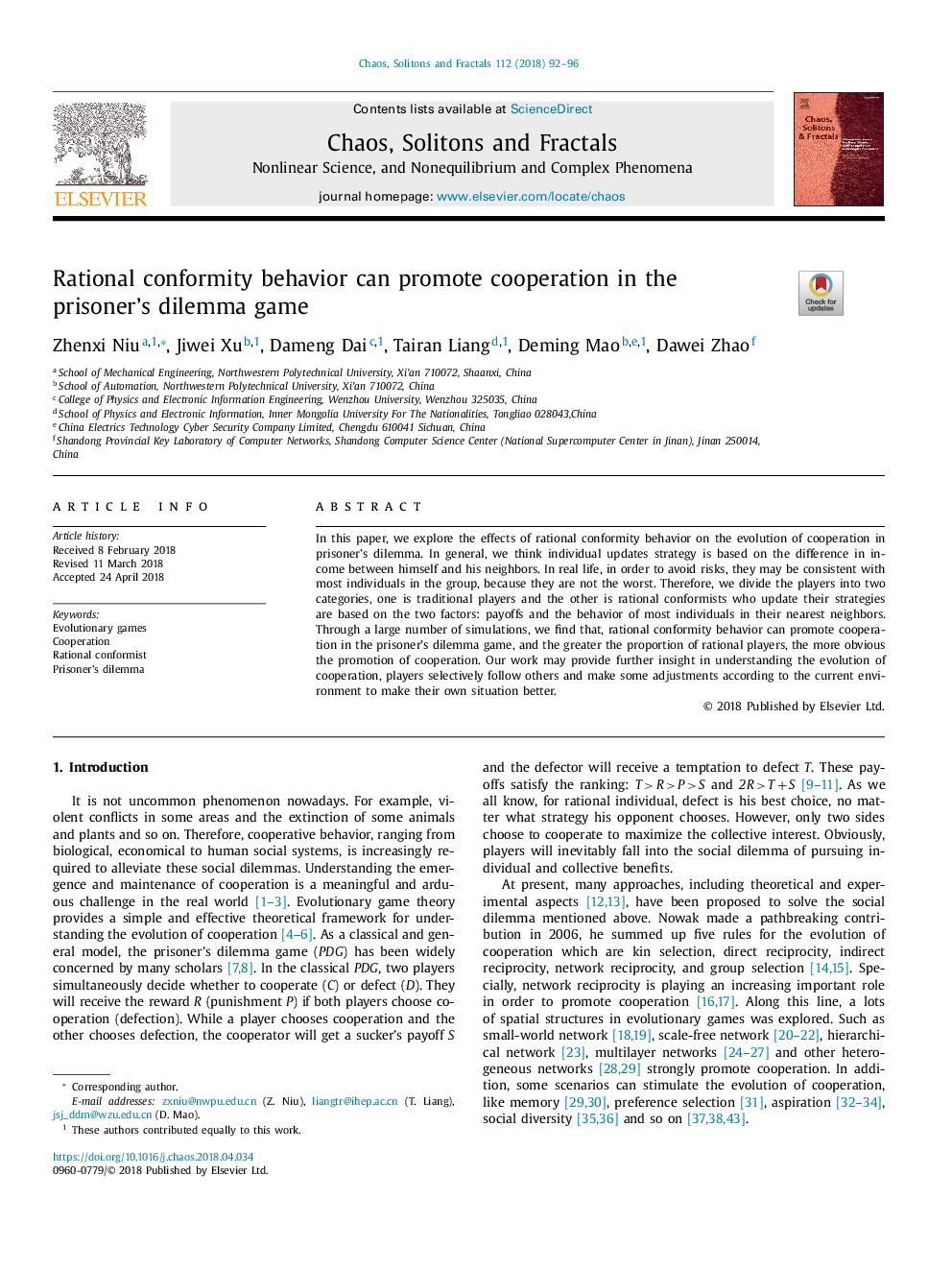| Article ID | Journal | Published Year | Pages | File Type |
|---|---|---|---|---|
| 8253575 | Chaos, Solitons & Fractals | 2018 | 5 Pages |
Abstract
In this paper, we explore the effects of rational conformity behavior on the evolution of cooperation in prisoner's dilemma. In general, we think individual updates strategy is based on the difference in income between himself and his neighbors. In real life, in order to avoid risks, they may be consistent with most individuals in the group, because they are not the worst. Therefore, we divide the players into two categories, one is traditional players and the other is rational conformists who update their strategies are based on the two factors: payoffs and the behavior of most individuals in their nearest neighbors. Through a large number of simulations, we find that, rational conformity behavior can promote cooperation in the prisoner's dilemma game, and the greater the proportion of rational players, the more obvious the promotion of cooperation. Our work may provide further insight in understanding the evolution of cooperation, players selectively follow others and make some adjustments according to the current environment to make their own situation better.
Related Topics
Physical Sciences and Engineering
Physics and Astronomy
Statistical and Nonlinear Physics
Authors
Niu Zhenxi, Xu Jiwei, Dai Dameng, Liang Tairan, Mao Deming, Zhao Dawei,
